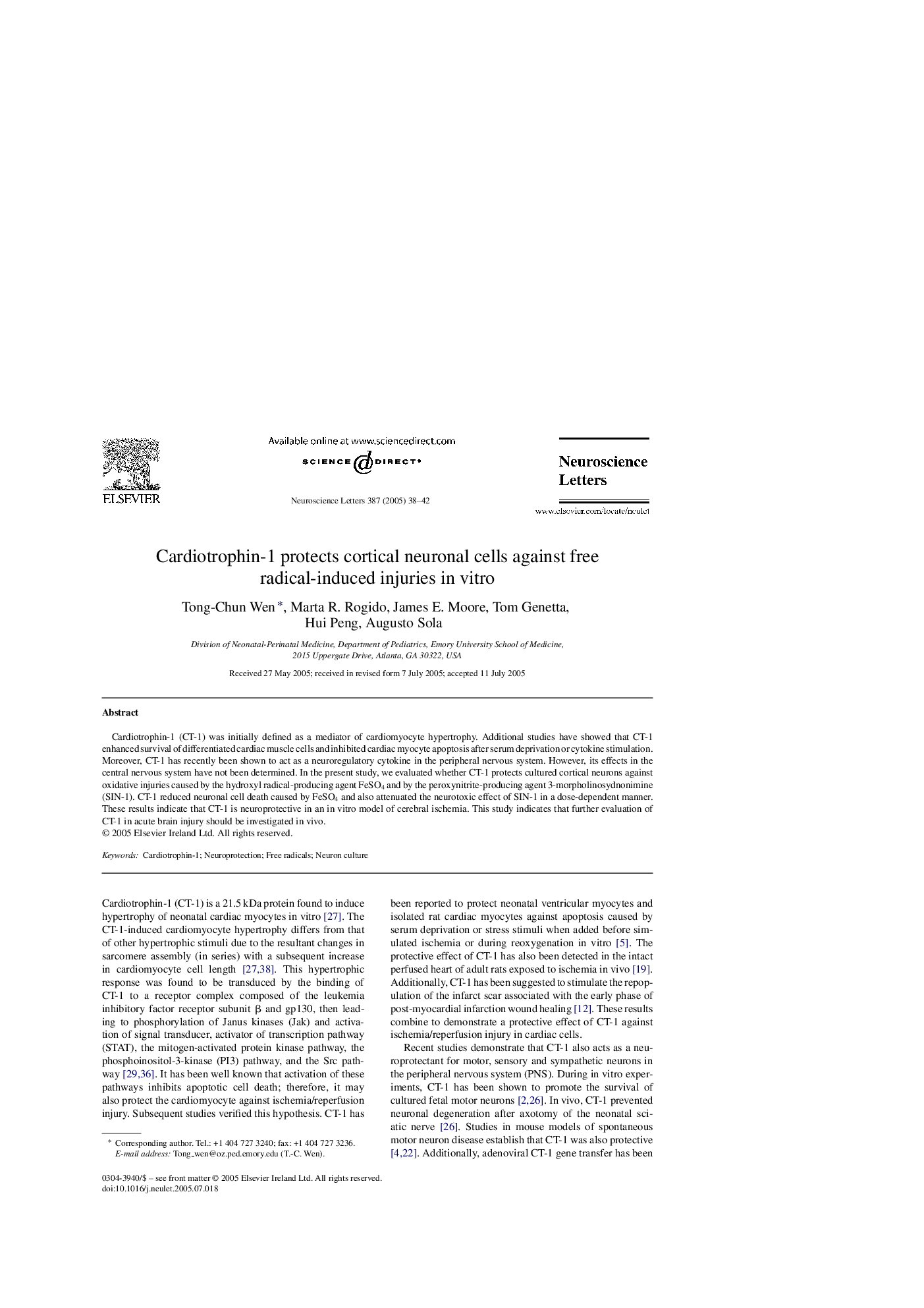| Article ID | Journal | Published Year | Pages | File Type |
|---|---|---|---|---|
| 9429159 | Neuroscience Letters | 2005 | 5 Pages |
Abstract
Cardiotrophin-1 (CT-1) was initially defined as a mediator of cardiomyocyte hypertrophy. Additional studies have showed that CT-1 enhanced survival of differentiated cardiac muscle cells and inhibited cardiac myocyte apoptosis after serum deprivation or cytokine stimulation. Moreover, CT-1 has recently been shown to act as a neuroregulatory cytokine in the peripheral nervous system. However, its effects in the central nervous system have not been determined. In the present study, we evaluated whether CT-1 protects cultured cortical neurons against oxidative injuries caused by the hydroxyl radical-producing agent FeSO4 and by the peroxynitrite-producing agent 3-morpholinosydnonimine (SIN-1). CT-1 reduced neuronal cell death caused by FeSO4 and also attenuated the neurotoxic effect of SIN-1 in a dose-dependent manner. These results indicate that CT-1 is neuroprotective in an in vitro model of cerebral ischemia. This study indicates that further evaluation of CT-1 in acute brain injury should be investigated in vivo.
Related Topics
Life Sciences
Neuroscience
Neuroscience (General)
Authors
Tong-Chun Wen, Marta R. Rogido, James E. Moore, Tom Genetta, Hui Peng, Augusto Sola,
